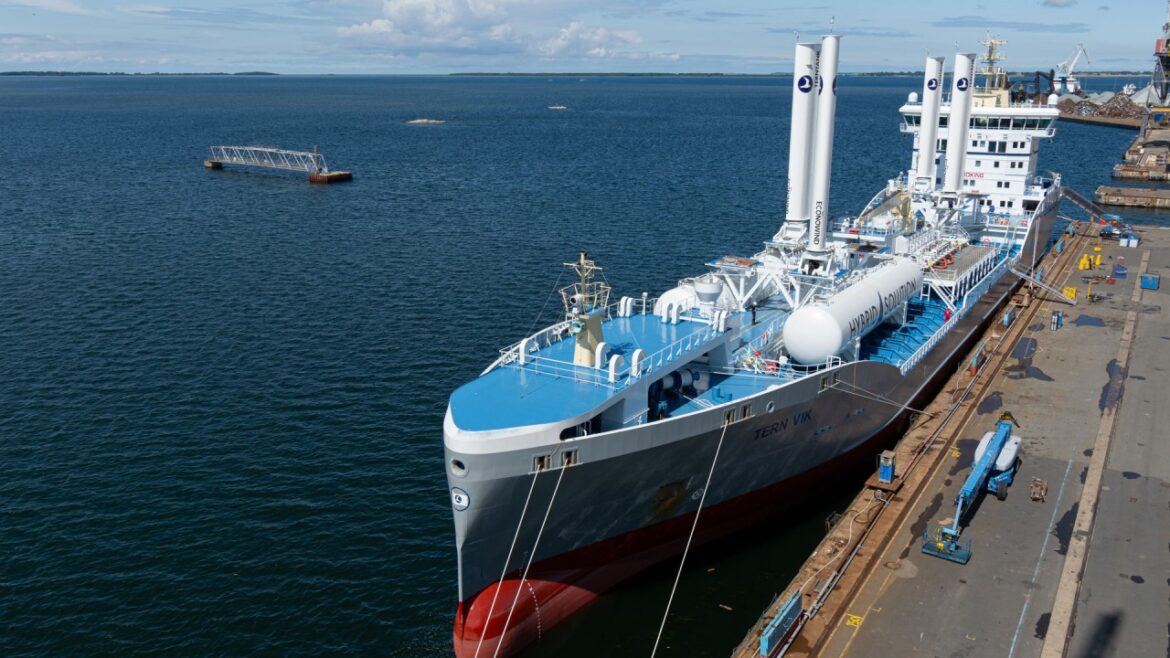Dutch wind propulsion specialist Econowind has secured a repeat order from Terntank, a leading Nordic shipping company, for the installation of eight VentoFoil units on two additional methanol-ready hybrid tankers.
This follows an initial order in May 2023, bringing the total to five vessels and 20 VentoFoils in operation.
Building Momentum for Wind Propulsion
The first vessel of the series, Tern Vik, was delivered in April 2025 by China Merchants Jinling Shipyard (Yangzhou). All five vessels feature Kongsberg’s energy and propulsion management system, allowing for dynamic power optimization using wind, batteries, and dual-fuel engines that run on methanol or diesel. This system is part of Kongsberg’s K-Sail concept, enabling wind to take the lead when conditions are right.
With a goal of achieving zero-emission operations, the vessels are designed in line with IMO 2050 targets, representing one of the most advanced sustainability efforts in the global tanker fleet.
Sustainability at the Core
Operating primarily in the Nordic region, Terntank is known for transporting sustainable fuels and pushing the boundaries of green shipping innovation. The lightweight, ATEX-certified, and foldable VentoFoils are central to the vessels’ Wind-Assisted Ship Propulsion (WASP) system, enabling safe use in port environments without compromising tanker safety standards.
Strong Performance Drives Market Confidence
This repeat order follows strong performance results from the first installations, demonstrating the contribution of Wind-Assisted Ship Propulsion to fuel savings and emission reductions.
“At Terntank, we are always looking for ways to reduce fuel consumption. It’s part of our DNA,” said Claes Möller, CEO of Terntank. “The installation of the VentoFoils and their integration with the Kongsberg system went seamlessly. It’s great to see that the actual fuel savings match what was predicted. We’re very pleased with the results.”
With this latest deal, Econowind has now sold over 130 VentoFoil units, which are being deployed across a range of vessel types including dry bulk carriers, ro-ro vessels, container ships, and tankers, underscoring the growing adoption of wind propulsion technology across the maritime industry. Source (including image): Econowind

